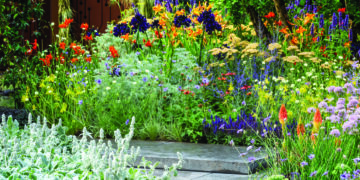Crop rotation is a crucial practice in gardening to prevent the build-up of pests and diseases that could potentially damage your vegetables. By rotating the families of vegetables around your garden each year, you can help to keep the soil healthy and reduce the risk of infestations. Although maintaining a strict rotation in small gardens can be challenging, it is still worth implementing to ensure the health and productivity of your garden.
Challenge of Rotation in Small Plots
Maintaining a strict rotation can be particularly difficult in small gardens due to limited space and the different-sized areas required for each crop. Multiple crops of the same vegetable, such as cabbage, can make finding a new site each time even more challenging. Additionally, tools and boots can spread pests and diseases, while certain weeds can provide a ‘bridge’ for harmful organisms when suitable crop plants are unavailable. However, despite these challenges, even short rotations in small gardens can be valuable in preventing the spread of pests and diseases.
Benefits of Crop Rotation
Crop rotation not only helps prevent pest and disease build-up but also allows for strategic application of organic material and lime to benefit specific crops. Organic material is especially advantageous for potatoes, celery, courgettes, and sweet corn, while it can cause Cabbage family plants to become overly leafy. By applying organic material before planting potatoes in a four-year rotation, each quarter of the vegetable area will receive it by the fourth year, ensuring that the entire garden benefits.
Lime application is another consideration when implementing crop rotation. Lime should be applied before planting the Cabbage family and kept away from the Potato family, as it prevents clubroot disease in the Cabbage family but encourages potato scab disease. Applying lime before the Cabbage family in a four-year rotation will cover the entire vegetable area in four years, which is optimal for acid soil.
While implementing crop rotation in small gardens can be challenging, it is an essential practice to prevent the build-up of pests and diseases and maintain the health of your garden. By rotating different vegetable families and strategically applying organic material and lime, you can make the most of your limited space and ensure a productive and healthy garden for years to come.











